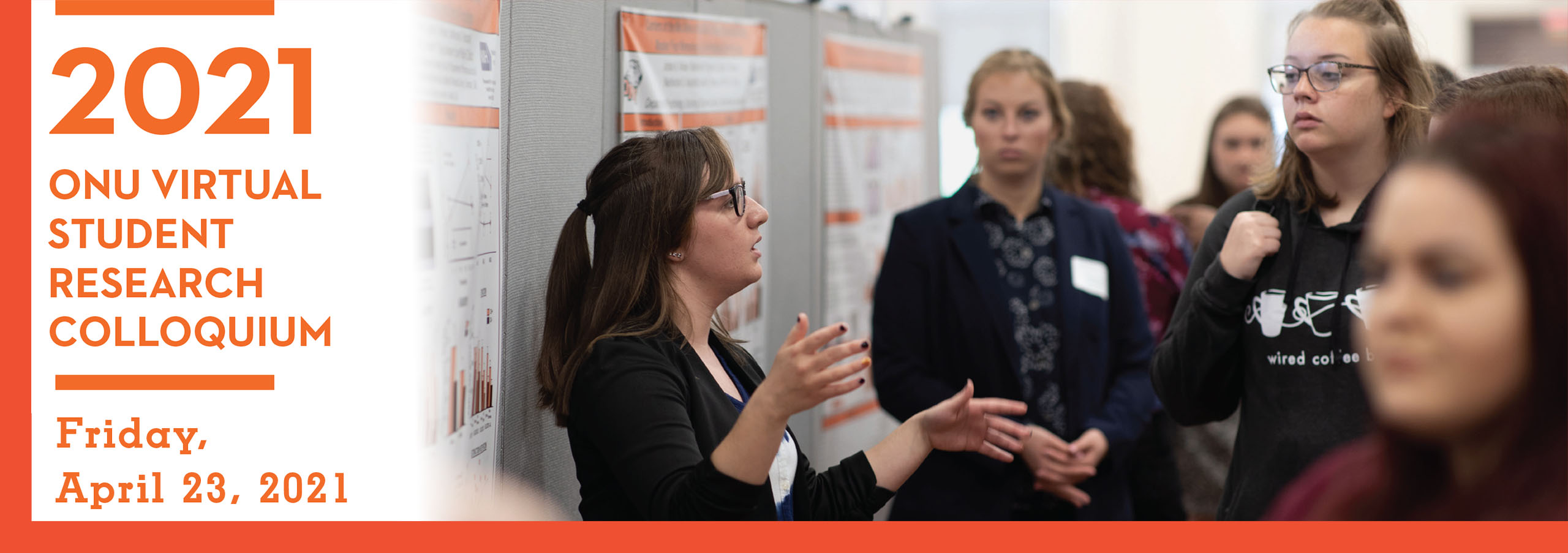Sponsor
Ross M. Kauffman, PhD
Ohio Northern University
Center for Interdisciplinary Studies
r-kauffman.2@onu.edu
Advisor(s)
Ross M. Kauffman, PhD
Ohio Northern University
Center for Interdisciplinary Studies
r-kauffman.2@onu.edu
Document Type
Video
Start Date
23-4-2021 9:00 AM
Abstract
Many colleges and universities saw a surge in students seeking counseling for anxiety as COVID-19 ravaged the world. Research suggested that the depression, stress, and anxiety was not from being locked down as much as it was from the technological challenges of remote learning. This study assessed the impacts of remote learning due to COVID-19 on the mental health of students at the university level. A convenience sample of Ohio Northern University students reported the proportion of their classes completed in-person and completed the Depression Anxiety Stress Scale (DASS-21) Results of the Pearson correlation indicated that there was no significant association between in-person classes and stress, (r(206)=.10, p=.15). About 12% percent of students suffered from mild stress, while around 5% of students suffered from moderate stress levels according to the DASS-21 scoring system. In qualitative responses, many students reported finding it hard to wind down in the evenings, feeling as if the lack of scheduled breaks reduced their mental health, and that they consistently felt behind. Despite the lack of a significant correlation between in-person classes and stress in this sample, these responses document the toll of COVID-19 precautions on ONU students.
Award
Third place recipient for the School of Health and Behavioral Sciences Choice Award
Recommended Citation
Barch, Shannon E., "How is Mental Health Being Affected by COVID-19 in ONU Students?" (2021). ONU Student Research Colloquium. 39.
https://digitalcommons.onu.edu/student_research_colloquium/2021/papers/39
Restricted
Available to ONU community via local IP address and ONU login.
How is Mental Health Being Affected by COVID-19 in ONU Students?
Many colleges and universities saw a surge in students seeking counseling for anxiety as COVID-19 ravaged the world. Research suggested that the depression, stress, and anxiety was not from being locked down as much as it was from the technological challenges of remote learning. This study assessed the impacts of remote learning due to COVID-19 on the mental health of students at the university level. A convenience sample of Ohio Northern University students reported the proportion of their classes completed in-person and completed the Depression Anxiety Stress Scale (DASS-21) Results of the Pearson correlation indicated that there was no significant association between in-person classes and stress, (r(206)=.10, p=.15). About 12% percent of students suffered from mild stress, while around 5% of students suffered from moderate stress levels according to the DASS-21 scoring system. In qualitative responses, many students reported finding it hard to wind down in the evenings, feeling as if the lack of scheduled breaks reduced their mental health, and that they consistently felt behind. Despite the lack of a significant correlation between in-person classes and stress in this sample, these responses document the toll of COVID-19 precautions on ONU students.

